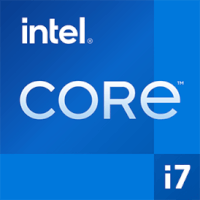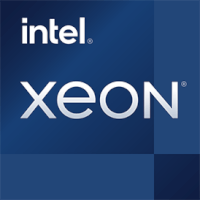

| Intel Core i7-4870HQ | Intel Xeon E5-2650 v2 | |
| 2.50 GHz | Frequency | 2.60 GHz |
| 3.70 GHz | Turbo (1 Core) | 3.40 GHz |
| No turbo | Turbo (All Cores) | 3.00 GHz |
| 4 | Cores | 8 |
| Yes | Hyperthreading ? | Yes |
| No | Overclocking ? | No |
| normal | Core architecture | normal |
| Intel Iris Pro Graphics 5200 | GPU | no iGPU |
| 11.1 | DirectX Version | |
| 3 | Max. displays | |
| DDR3L-1333 SO-DIMMDDR3L-1600 SO-DIMM | Memory | DDR3-1600 |
| 2 | Memory channels | 4 |
| 32 GB | Max. Memory | |
| No | ECC | Yes |
| -- | L2 Cache | -- |
| 6.00 MB | L3 Cache | 20.00 MB |
| 3.0 | PCIe version | 3.0 |
| 16 | PCIe lanes | 40 |
| 22 nm | Technology | 22 nm |
| BGA 1364 | Socket | LGA 2011 |
| 47 W | TDP | 95 W |
| VT-x, VT-x EPT, VT-d | Virtualization | VT-x, VT-x EPT, VT-d |
| Q3/2014 | Release date | Q3/2013 |
| show more detail | show more detail |
Cinebench R20 is the successor of Cinebench R15 and is also based on the Cinema 4 Suite. Cinema 4 is a worldwide used software to create 3D forms. The single-core test only uses one CPU core, the amount of cores or hyperthreading ability doesn't count.
Cinebench R20 is the successor of Cinebench R15 and is also based on the Cinema 4 Suite. Cinema 4 is a worldwide used software to create 3D forms. The multi-core test involves all CPU cores and taks a big advantage of hyperthreading.
Cinebench R15 is the successor of Cinebench 11.5 and is also based on the Cinema 4 Suite. Cinema 4 is a worldwide used software to create 3D forms. The single-core test only uses one CPU core, the amount of cores or hyperthreading ability doesn't count.
Cinebench R15 is the successor of Cinebench 11.5 and is also based on the Cinema 4 Suite. Cinema 4 is a worldwide used software to create 3D forms. The multi-core test involves all CPU cores and taks a big advantage of hyperthreading.
Geekbench 5 is a cross plattform benchmark that heavily uses the systems memory. A fast memory will push the result a lot. The single-core test only uses one CPU core, the amount of cores or hyperthreading ability doesn't count.
Geekbench 5 is a cross plattform benchmark that heavily uses the systems memory. A fast memory will push the result a lot. The multi-core test involves all CPU cores and taks a big advantage of hyperthreading.
The theoretical computing performance of the internal graphics unit of the processor with simple accuracy (32 bit) in GFLOPS. GFLOPS indicates how many billion floating point operations the iGPU can perform per second.
Geekbench 3 is a cross plattform benchmark that heavily uses the systems memory. A fast memory will push the result a lot. The single-core test only uses one CPU core, the amount of cores or hyperthreading ability doesn't count.
Geekbench 3 is a cross plattform benchmark that heavily uses the systems memory. A fast memory will push the result a lot. The multi-core test involves all CPU cores and taks a big advantage of hyperthreading.
Cinebench 11.5 is based on the Cinema 4D Suite, a software that is popular to generate forms and other stuff in 3D. The single-core test only uses one CPU core, the amount of cores or hyperthreading ability doesn't count.
Cinebench 11.5 is based on the Cinema 4D Suite, a software that is popular to generate forms and other stuff in 3D. The multi-core test involves all CPU cores and taks a big advantage of hyperthreading.
Some of the CPUs listed below have been benchmarked by CPU-Benchmark. However the majority of CPUs have not been tested and the results have been estimated by a CPU-Benchmark’s secret proprietary formula. As such they do not accurately reflect the actual Passmark CPU mark values and are not endorsed by PassMark Software Pty Ltd.